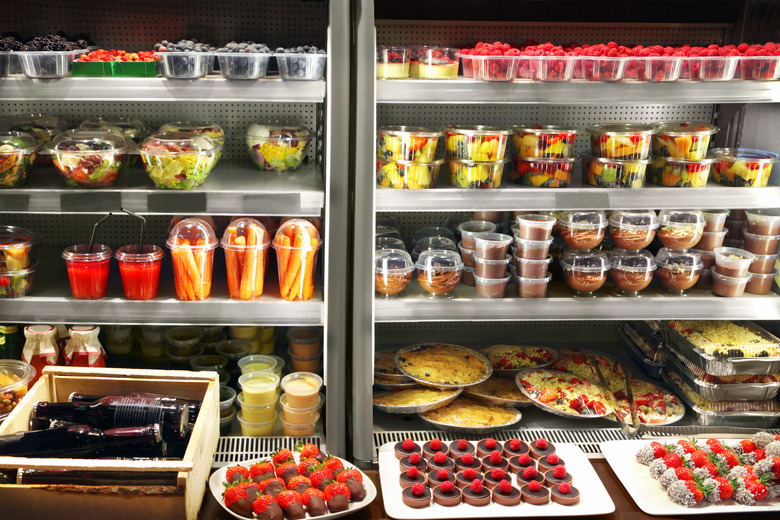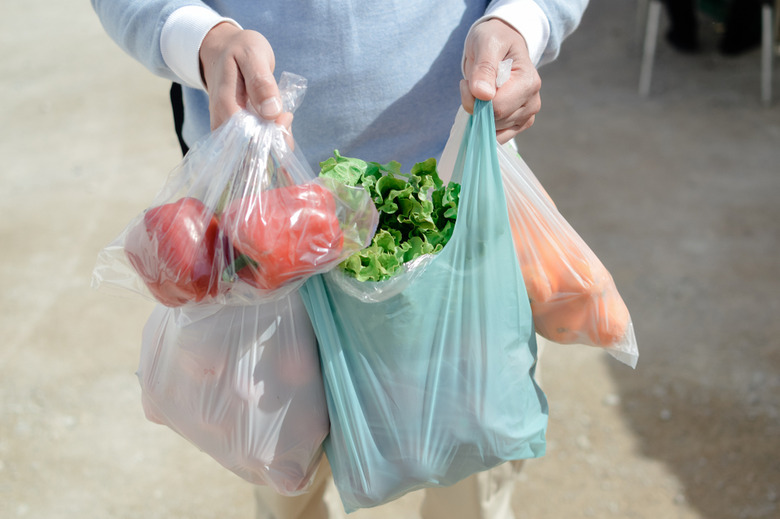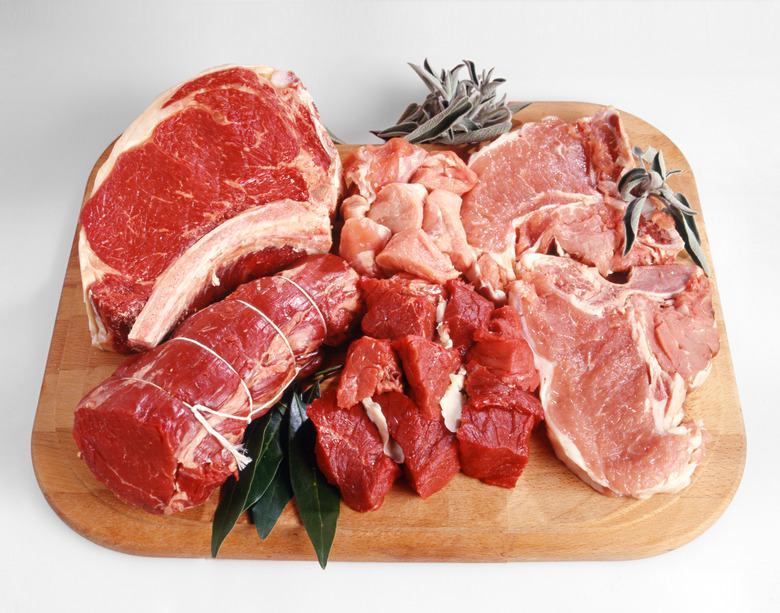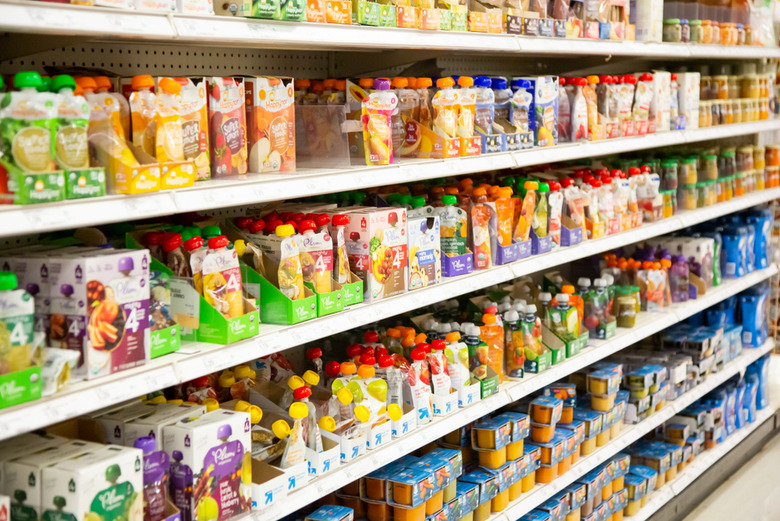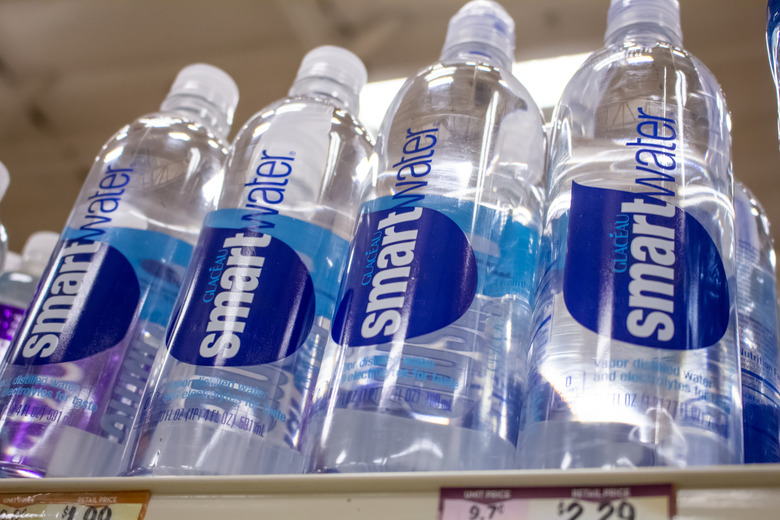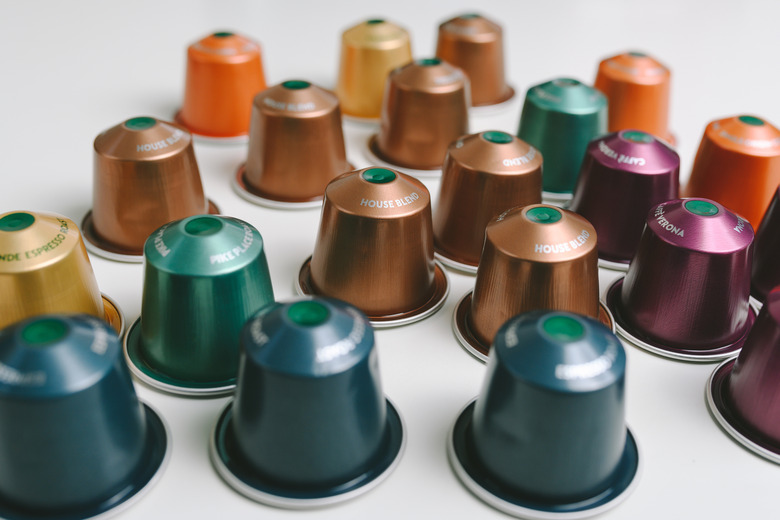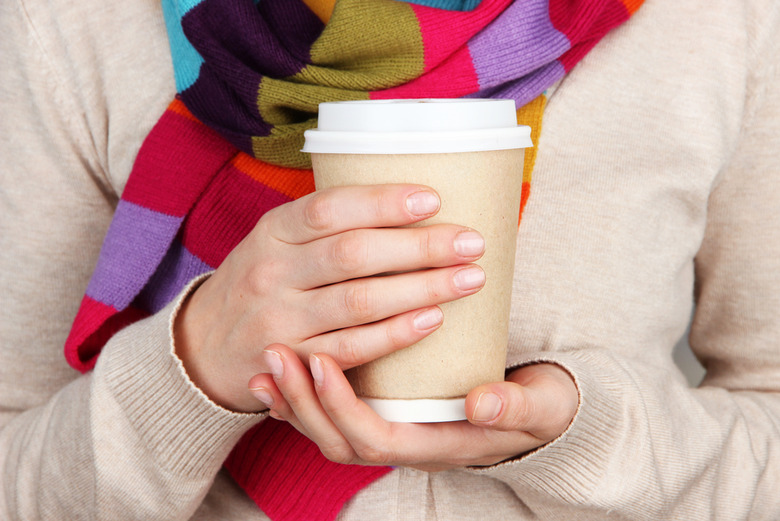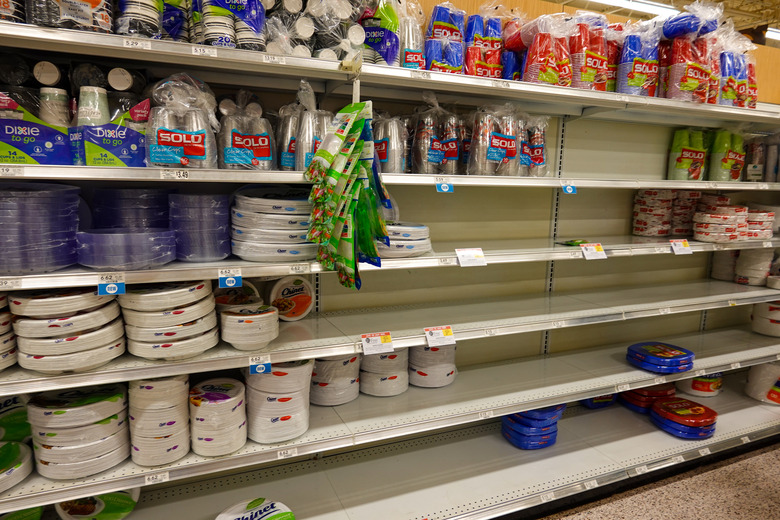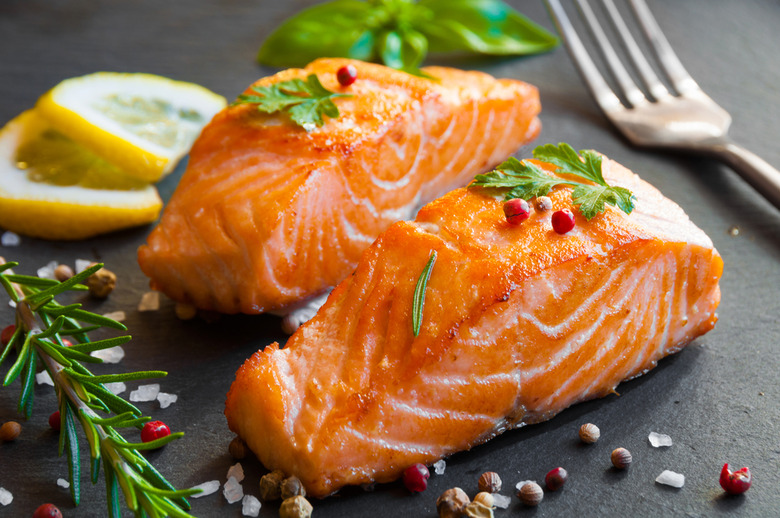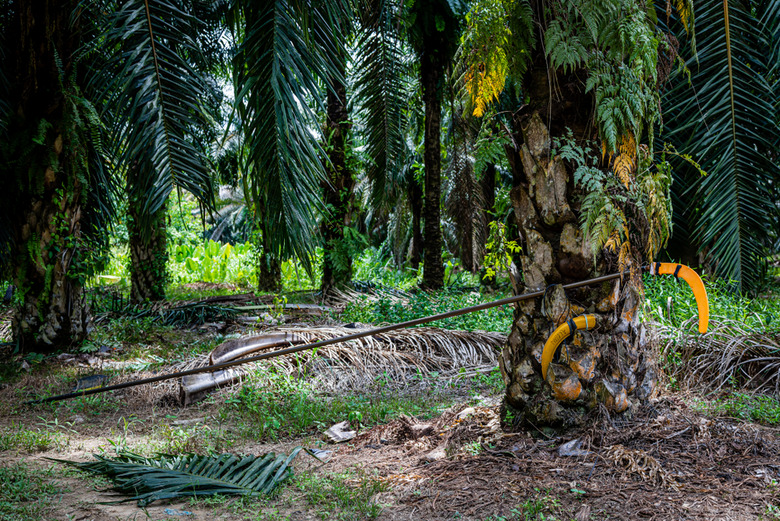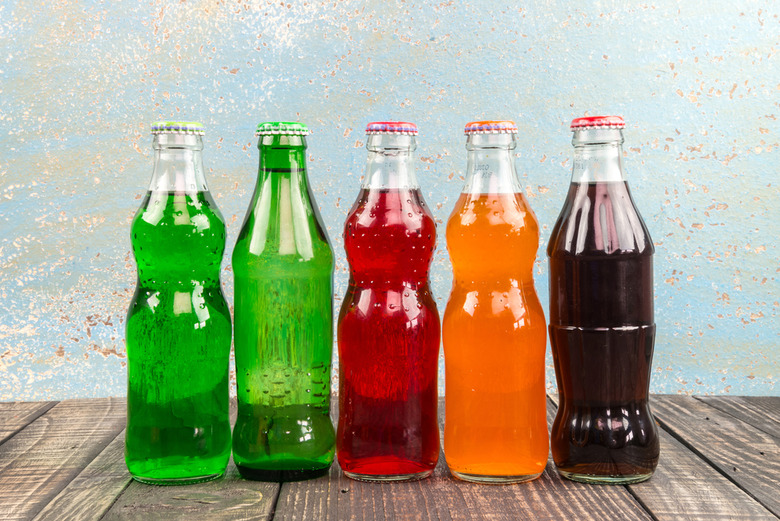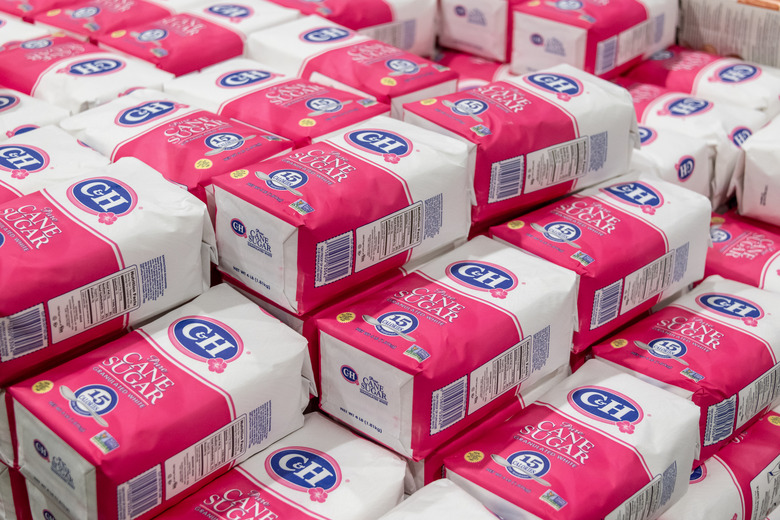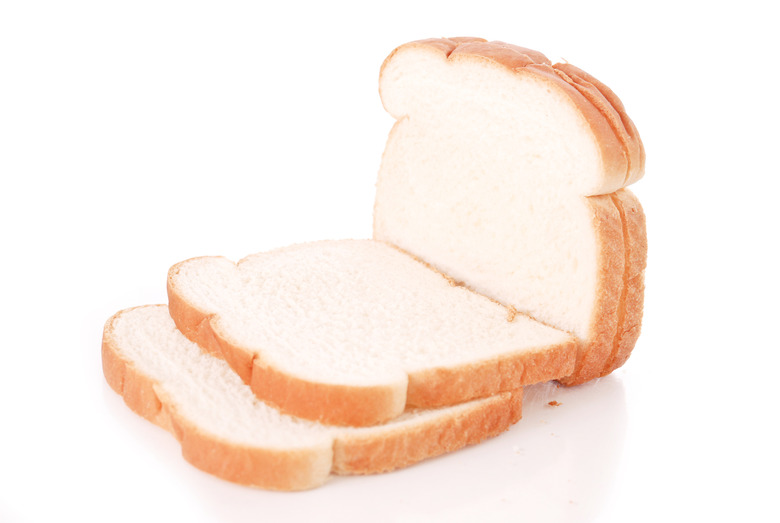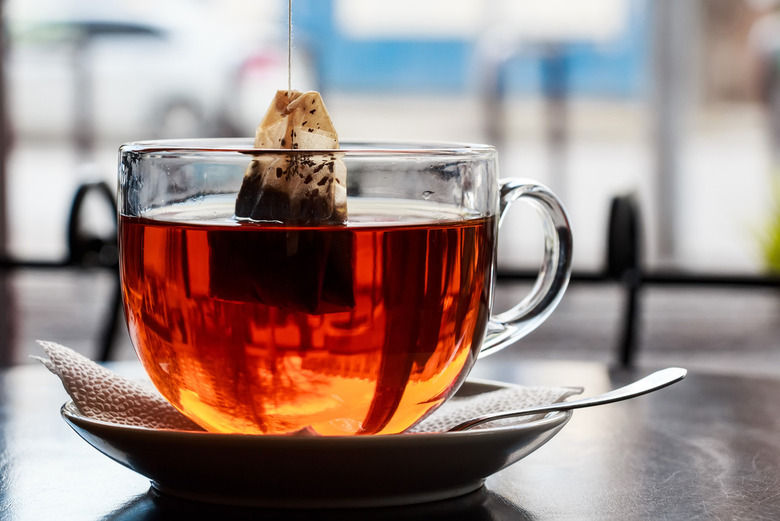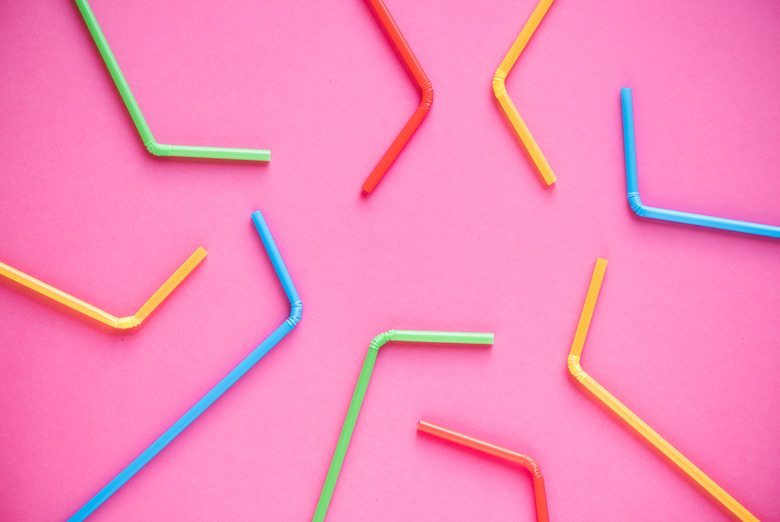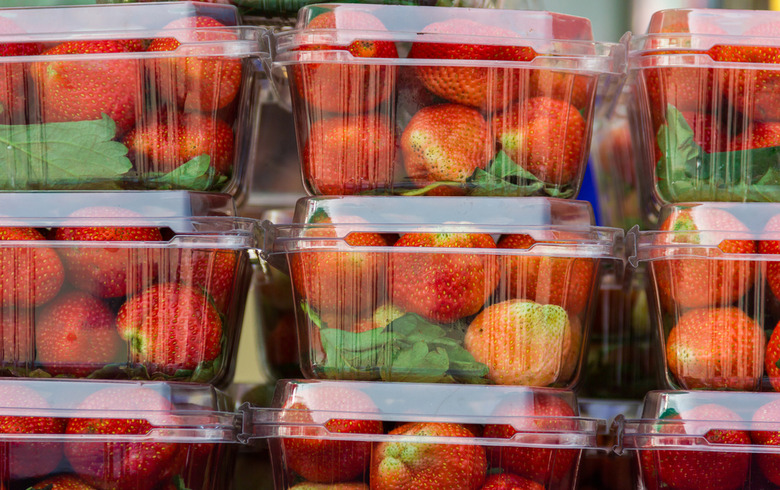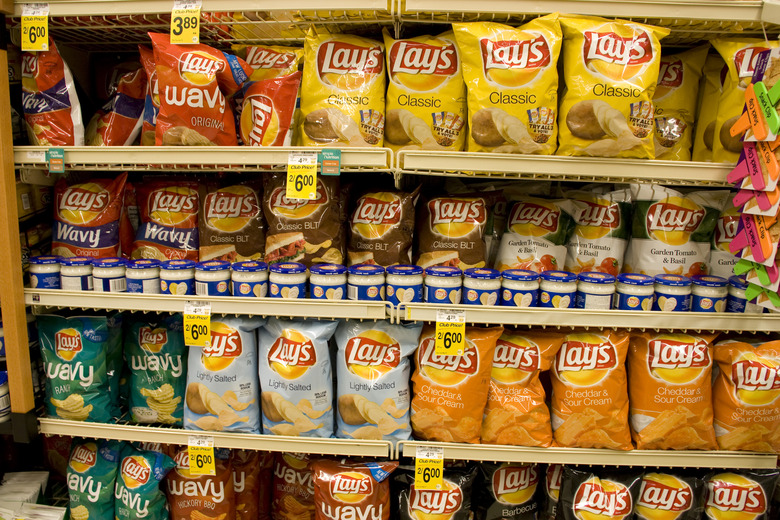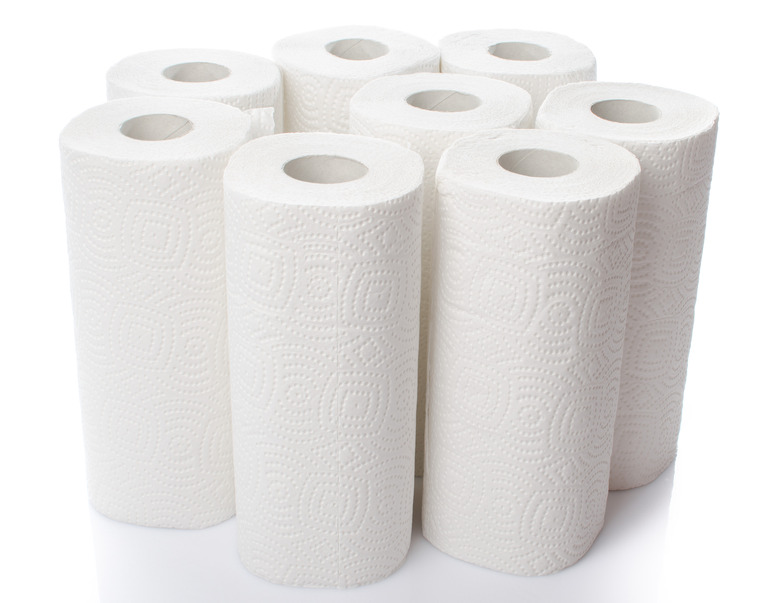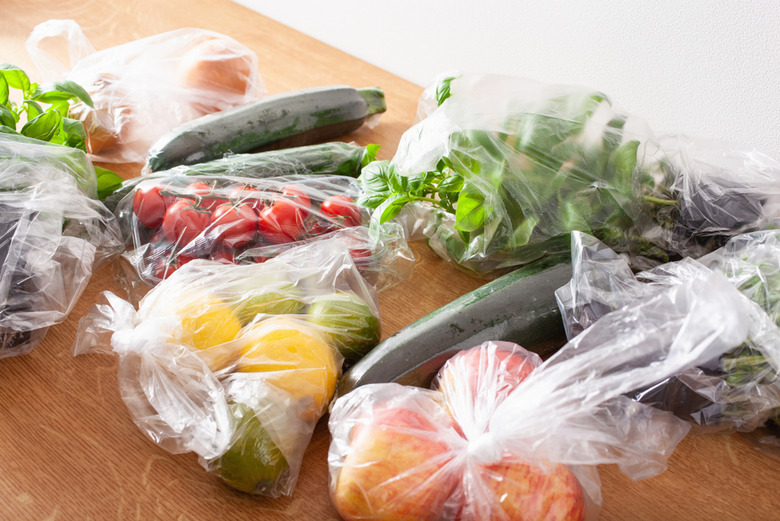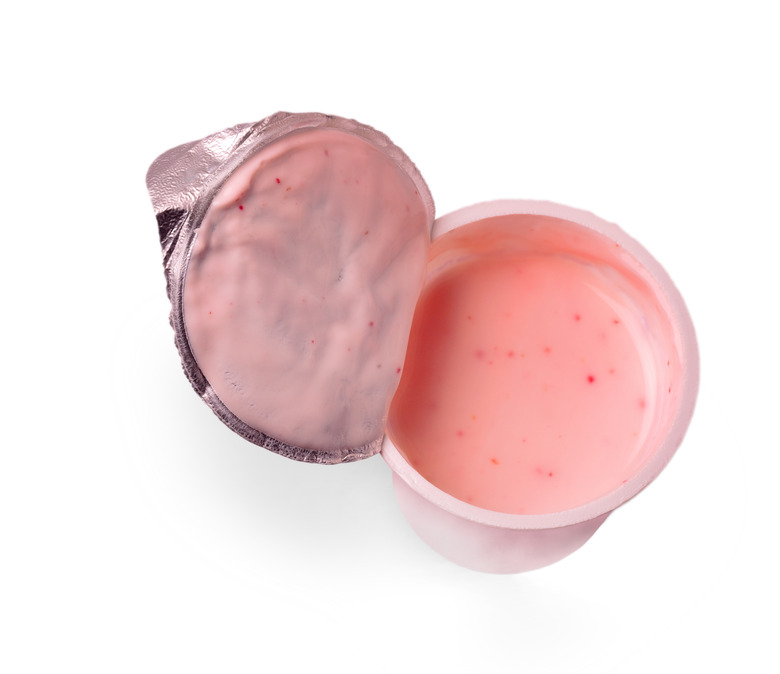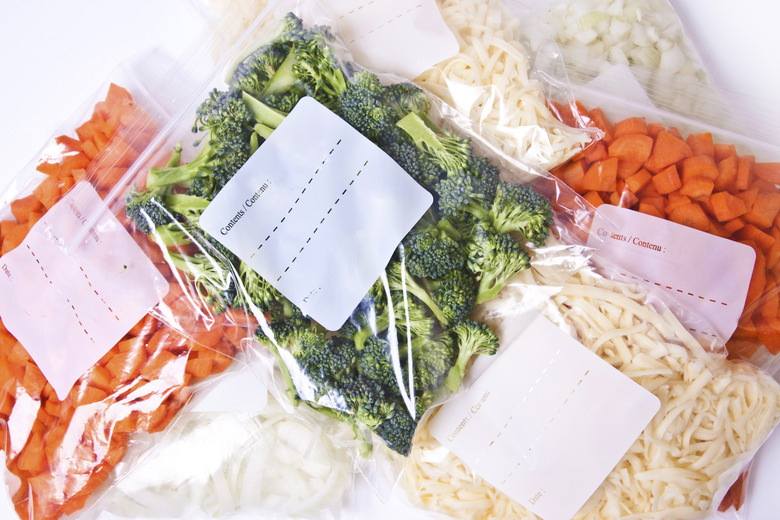The Least Eco-Friendly Things You Can Buy At The Grocery Store
The grocery store is all about choices. Low-fat or full fat? Fruit or candy? Given all the options, it's easy to mindlessly throw stuff into your cart without realizing that your decisions affect more than just your body and your wallet. They also impact the environment.
If you want to shop with a bit more awareness, there are some simple steps you can take that won't uproot your day-to-day shopping experience. Avoid buying the least eco-friendly grocery store items and you'll be off to a great start.
Plastic grocery bags
First things first: ditch the plastic bags and take your own reusable tote. According to the Center for Biological Diversity, it takes nearly 500 years for one plastic bag to degrade in a landfill. And the bags don't even break down completely. Instead, they photo-degrade and become microplastics that absorb toxins and contribute to pollution in the atmosphere. The organization also notes that Americans use 100 billion plastic bags a year, which requires 12 million barrels of oil to make.
Animal products
The livestock sector, which raises cows, pigs and chickens, is responsible for using a significant amount of natural resources and releases high levels of greenhouse gases into the atmosphere. Methane is a byproduct of the industry that has 28 times the effect of carbon dioxide on global warming.
Baby food pouches
Baby food used to be packaged primarily in tiny glass jars, but these days it is increasingly common to see small single-serve pouches lining store shelves. Most of these sealed pouches cannot be recycled because the pouch films are not biodegradable.
Bottled water
Reducing plastic bottles will not only help you save money, but it will also contribute to saving the environment. According to the Container Recycling Institute, more than 60 million plastic bottles end up in landfills and incinerators every day and the Environmental Protection Agency's records indicate that the country's landfills received 26.8 million tons of plastic in 2017.
Coffee pods
Coffee pods are super convenient and come in so many flavors that it's hard to resist stocking up. But they can be harmful to the environment over time since recycling the coffee pods is a little complicated. For example, K-Cups can be recycled only after the pod components are separated by plastic, aluminum and the paper filter — but the K-Cup pod as a whole cannot be. Refillable coffee pods that you can pair with your favorite coffee brand are available. They can be filled and reused — and the old coffee grounds can be composted once your brew is ready.
Disposable paper coffee cups
Because most paper cups cannot be recycled, they're being collected in landfills and reducing the quality of soil and natural resources. These days there are plenty of coffee flasks and mugs to choose from.
Disposable plates
Picking up a tall stack of disposable plates, forks and glasses is an easy solution for parties and if you have kids, but opting for plastic or even paper is not always sustainable. Plastic takes a really long time to break down in landfills and paper plates that have been used for food cannot be recycled after being contaminated. But if you must get them, they're one grocery store item you should never pay full price for.
Farmed salmon
Farmed salmon can be one of the worst offenders among seafood options. The chemicals and excess nutrients associated with salmon farms can harm aquatic life on the ocean floor. Farmers also utilize antibiotics as well as other chemicals to prevent disease. Wild salmon is a good heart-healthy choice.
Foods with palm oil
Palm oil, an ingredient found in everything from bread, potato chips and ice cream to store-bought cookies, soap and even lipsticks, is one of the world's leading causes of deforestation. According to the World Wildlife Fund, the crop offers a far greater yield at a lower cost of production than any other vegetable oil, which is why it's so widely used. And because of that, the global expansion of palm oil plantations is at the expense of many tropical rainforests.
Foods with high-fructose corn syrup
Cookies have it, some breads have it and diet soda definitely has it. Another ingredient that can be found in many supermarket items is high-fructose corn syrup. Conventional farming of corn uses significant water resources, pesticides and fertilizers, which lead to water pollution and nutrient-depleted soil. The production of high fructose corn syrup takes nutrients out of the earth without giving anything back.
Foods with refined sugar cane
One of the most common sources of refined sugar is sugarcane, which has some not-so-great environmental impacts. According to the World Wildlife Fund, sugarcane production often pollutes freshwater ecosystems with silt and fertilizers that wash into surrounding waterways from mills and farms. In the Great Barrier Reef, for example, those contaminants are flowing out to the ocean and damaging coral ecosystems.
White bread
Because most white bread is made from refined sugar, it is not only less nutritious than whole-wheat bread, it also requires more energy and resources to produce.
Tea bags
Boxes of tea bags generate a lot of cardboard and plastic, and the tea bags themselves are not simple to dispose of in an eco-friendly way. Loose leaf tea is an option with a simple metal tea infuser.
Plastic straws
Single-use straws eventually get thrown away and, along with other plastic trash, can end up in the ocean and pose risks to marine life. In 2015, a group of researchers off the coast of Costa Rica came across a sea turtle with what they thought was a worm in its nose, but it actually turned out to be a plastic straw that was stuck inside the turtle's nasal cavity.
Produce in plastic containers
Some fruit or produce comes packaged in plastic containers or Styrofoam trays, but there are also plenty of fruits and veggies that are in season that are available unpackaged.
Potato chips
An addictive snack to have on hand, potato chips are just as perfect to take to a party or to munch on at 3 a.m. However, if you're trying to be more mindful when you shop, potato chips don't score too many environmental points. The packaging of common potato chips is considered "flexible packaging." Such bags are made from layers of different types of plastic and are lined with aluminum, making it difficult to separate the layers so it can be properly recycled.
Paper towel rolls
Paper towels are a household essential, but most paper towels (unless otherwise noted as biodegradable) are not recyclable. An easy swap with kitchen towels can help you cut down on paper towel use, just be sure to wash them regularly.
Plastic produce bag
While the plastic produce bags are readily available when selecting produce items like loose tomatoes or lemons, shoppers can also bring their own lightweight small bags instead.
Single-serving foods
When perusing your favorite supermarket, it might make more sense to buy single-servings of things like yogurt and other dairy products, especially if you have lots of mouths to feed on the go. But it is more environmentally friendly to buy a single large container rather than many small ones. Small vessels are harder to clean and more likely to be contaminated with food residue, making them much more difficult to recycle.
Sandwich bags
Like straws and plastic cups, sandwich bags are a single-use item that many people use once and then throw away. Reusable waxed sandwich wraps are also available for snacks or sandwiches, which will keep them safe and sound until lunchtime. You can also drop a few more bucks and get a reusable silicone food bag that is one of the most eco-friendly things you can buy at the grocery store.
More from The Daily Meal:
35 Grocery Store Items You Should Never Pay Full Price For
You're Storing These Groceries All Wrong
25 Grocery Items You Should Stop Buying
